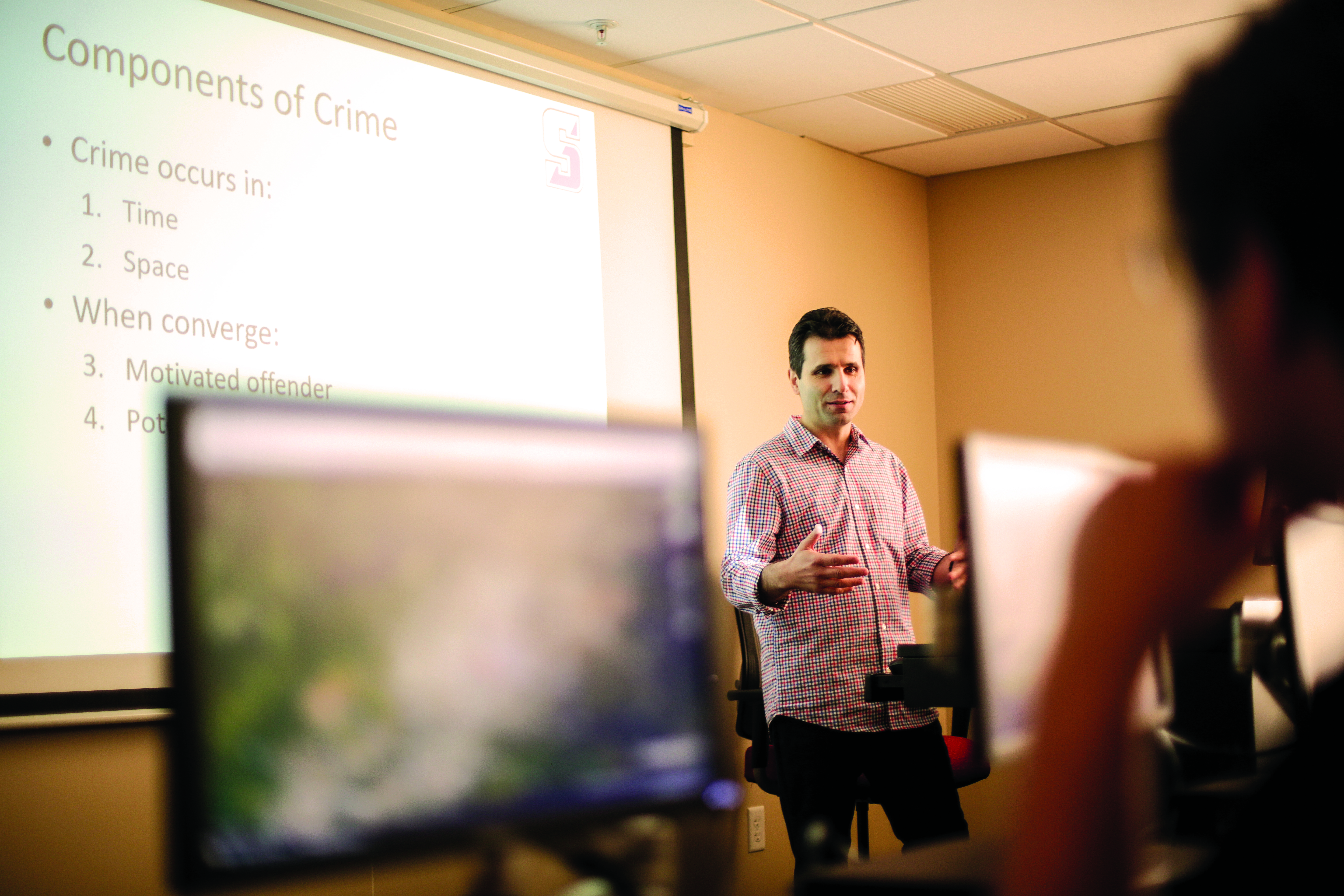Cybercrime Investigation and Cybersecurity, MS
This new, ever-evolving, technology-driven graduate program is offered online. Students may complete courses on an accelerated, 1-year or 2-year progression, making the program more affordable and accessible for international and non-traditional (i.e., professional-working) students.
The MS program aims to provide students with specialized skills in preventing and responding to cybercrime and cybersecurity-related issues. The program is aligned with the National Initiative for Cybersecurity Education (NICE) Cybersecurity Workforce Framework, which is led by the National Institute of Standards and Technology (NIST) in the U.S. Department of Commerce.
The program can help prepare students for various professional certifications, such as Certified Ethical Hacker (CEH), Computer Hacking Forensic Investigator (CHFI), or other certifications by International Information System Security Certification Consortium (ISC)2.
Program Requirements
All applicants must submit the following documents to be considered for acceptance:
- Application for Admission
- Statement of Intent
- Official transcripts from all schools attended. A bachelor’s degree from a regionally accredited U.S. (or equivalent from an international) college or university.
- An undergraduate GPA of at least 3.0 (on a 4.0 scale)
- For international students only: Proof of English proficiency by submitting TOEFL, STEP, or IELTS scores
- Two letters of recommendation
The program will offer conditional and probationary acceptance in line with graduate admission policy.
For general application requirements, please Visit Our Admissions Webpage.
Curriculum
The MS in Cybercrime Investigation and Cybersecurity curriculum will be comprised of 10 three-credit courses with a total of 30 credits (8 required and 2 elective three-credit courses).
The program will provide experiential learning opportunities that allow students to interact with the material and learn hands on skills for responding to cybercrime threats in a real-world setting. Experiential learning opportunities in the form of labs, simulations, and gamification platforms will provide students with hands-on training to prepare them for responding to and investigating cyberattacks.
Students will take lecture courses to cover advanced principles of cyberforensic investigation and cybersecurity. In addition, students will take courses in our laboratory that cover advanced techniques used by cybercrime analysts and investigators in practice.
Core Courses – 8 required (3 credits each)
CIC 501 – Cyber Criminology and Criminal Justice
CIC 521 – Cyber Threat Intelligence
CIC 531 – Advanced Cyber Defense
CIC 541 – Data Analysis
CIC 551 – Digital Forensics
CIC 561 – Advanced Penetration Testing
CIC 571 – Mobile Forensics
CIC 590 – Cybercrime Investigation and Cybersecurity Capstone
Elective Courses – select any two required (3 credits each)
CIC 512 – Research in Cybercrime and Cybersecurity
CIC 542 – Geographic Information System for Cybercrime and Cybersecurity
CIC 511 – Cybersecurity Essentials
SE 501 – Intro to Software Development
Purpose of the Cybercrime Investigation and Cybersecurity Program
To provide traditional-aged students and established professionals in the field with the knowledge and skills regarding how to identify solutions to local and global cyber threats, while mastering legal, ethical and policy issues in this critical field. Our Sociology, Criminal Justice and Criminology Department is well-situated for playing an active role in training the cybersecurity experts of tomorrow.
Beyond the Classroom

Assistantships
Graduate Assistants, who assist faculty in the delivery of course content, receive a stipend as well as tuition scholarships.

Center for the Analysis & Prevention of Crime
The facility combines faculty expertise, practitioner insight and student learning to enhance capabilities.
With over 30 programs, The University of Scranton can help you achieve your goals, personally and professionally. Find out what our students have to say about graduate education at Scranton.
Accreditation
The Cybercrime Investigation and Cybersecurity (CIC) program will seek designation on Cyber Defense Education (CDE) from the National Centers of Academic Excellence in Cybersecurity (NCAE-C). The program proposal has been developed in alignment with the NICE Framework. The National Initiative for Cybersecurity Education (NICE) Cybersecurity Workforce Framework is led by the National Institute of Standards and Technology (NIST) in the U.S. Department of Commerce.
Career Outlook
The field of cybercrime and cybersecurity is growing rapidly as malicious attacks to information sytems become more frequent and detrimental to individuals and organizations. With such a dramatic growth in demand in such a short timeframe, there is a shortage in the supply of professionals entering the field.
- The Bureau of Labor Statistics indicates that employment for cybersecurity analysts will increase 28% between 2016 and 2026.
- The demand for digital forensic analysts is expected to grow by 32% from 2018 to 2028.
- Graduates of cybercrime investigation and cybersecurity master's programs work for small and large businesses, government agencies and non-profit organizations.
- They hold positions such as Cybercrime Investigator, Digital Forensic Examiner and Cybersecurity Specialist.
Meet the Program Director

Dr. Mehmet Bastug
Program Director Assistant Professor
M.S., Ph.D., Rutgers University
570-941-7926mehmet.bastug@scranton.edu





